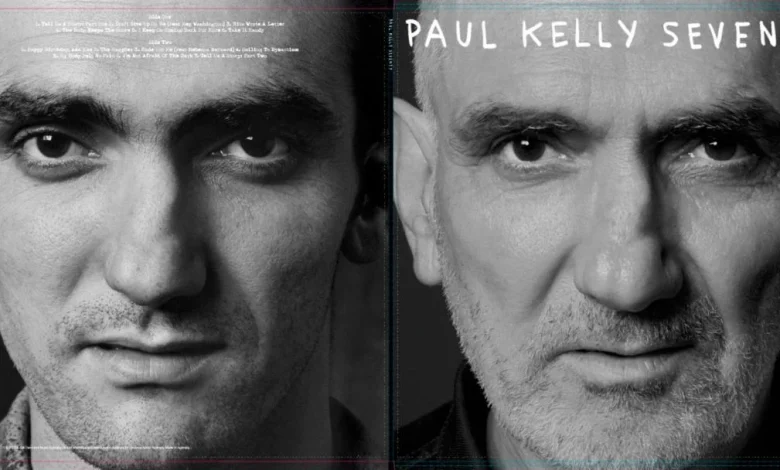On ‘Seventy,’ Paul Kelly Delivers More Thought Provoking Vintage Flavored Folk

As much a result of his own prolific nature as the moving effect of reaching the milestone referenced in the album title, Paul Kelly’s Seventy arrives hot on the heels of Fever Longing Still, his studio album of just last year.
Shorn of the horns and strings of the latter, however, the Australian’s twenty-eighth studio album is vintage folk-rock that, by its very simplicity, becomes even more thought-provoking in its mature reflections on the passage of time. Not surprisingly in the company of longstanding accompanists like drummer Peter Luscombe and bassist Bill McDonald–the rhythm section notably comes first in the lists of credits–Kelly gracefully yet forcefully renders original material like “Rita Wrote A Letter” so that the songs act like prisms illuminating the subtleties of the aging process.
Such a topic may not be particularly appealing to younger audiences, but it offers ample insight for the heartiest introspectives within Paul’s demographic. The aforementioned sequel to “How To Make Gravy” succeeds on its own wholly infectious terms; however, its main conceit unfolds as artfully as the progression of conversational passages in its predecessor, softly buoyed by the author’s acoustic guitar at the track’s core.
And while “The Body Keeps The Score” casts an ominous shadow on these meditative proceedings, “I Keep On Coming Back For More”, is a testament to perseverance in the shadow(s) of such doom-laden thoughts, bolstered by the insistent rhythm at its core. On the former, Kelly’s unself-conscious vocal is fully in keeping with the song itself–‘A tick tick tick tick tick tick ticking time bomb.’
But that portentous mood only makes his singing on “Happy Birthday Ada Mae” sound all the more tender. Paul has the gift of honest reflection and proffers it unadorned through his vocal phrasing and word combinations. Little wonder then that “Take It Handy” is so jolly in the face of mortality as its subject, thanks in part to the way Cameron Bruce’s hands dance across the keys of his piano.
Appropriately enough, these baker’s dozen tracks begin with “Tell Us A Story,” the introduction to a narrative Paul Kelly constructs through the subsequent cuts. With his usual discerning eye for detail in both words and music, the author’s clarity of purpose mirrors the arrangements, musicianship and production of this album, mostly recorded, but all of it mixed, by Steven Schram.
The emotionally direct confession “Don’t Give Up On Me” features the chiming electric guitars of Ashley Naylor and Paul’s nephew, Dan Kelly, aural textures that compel rapt attention. Meanwhile, the insinuating nature of such deep ruminations becomes all the more vivid when hearing a number like “Mad For Me.” Rebecca Barnard’s co-lead vocal turns the song as sensual as can be, yet her winsome tones don’t camouflage the topicality that becomes overt in “Sailing to Byzantium.”
Taking a poem by W. B. Yeats, Kelly and co-writer James Ledger composed music as rich as the verbiage, the all-engrossing nature of which comes to full flower through the sympathetic accompaniment. And it is not to overestimate Paul’s skills as a composer, recording artist, and bandleader to suggest “My Body Felt No Pain” rings equally deep and true in just over two short minutes.
By the time “I’m Not Afraid of the Dark” rolls around as the penultimate cut on Seventy, it might seem like Paul Kelly is borderline obsessed with the travails of life and the relationships that arise therein. But the harmony vocals of Billy Miller and Alice Keath, combined with the circus-like organ backdrop, serve to expand his vision beyond his own perspective and with no little jollity either.
‘It’s not all about me,’ Paul intimates, and, sure enough, he reiterates his point, albeit delicately, on “Part Two” of the composition that began the album. Still, if Kelly dares to suggest anything profound on Seventy, it is only through his wilful implication that the narratives surrounding us are as absorbing as our own, at least when perceived within the generosity of spirit permeating these recordings.





